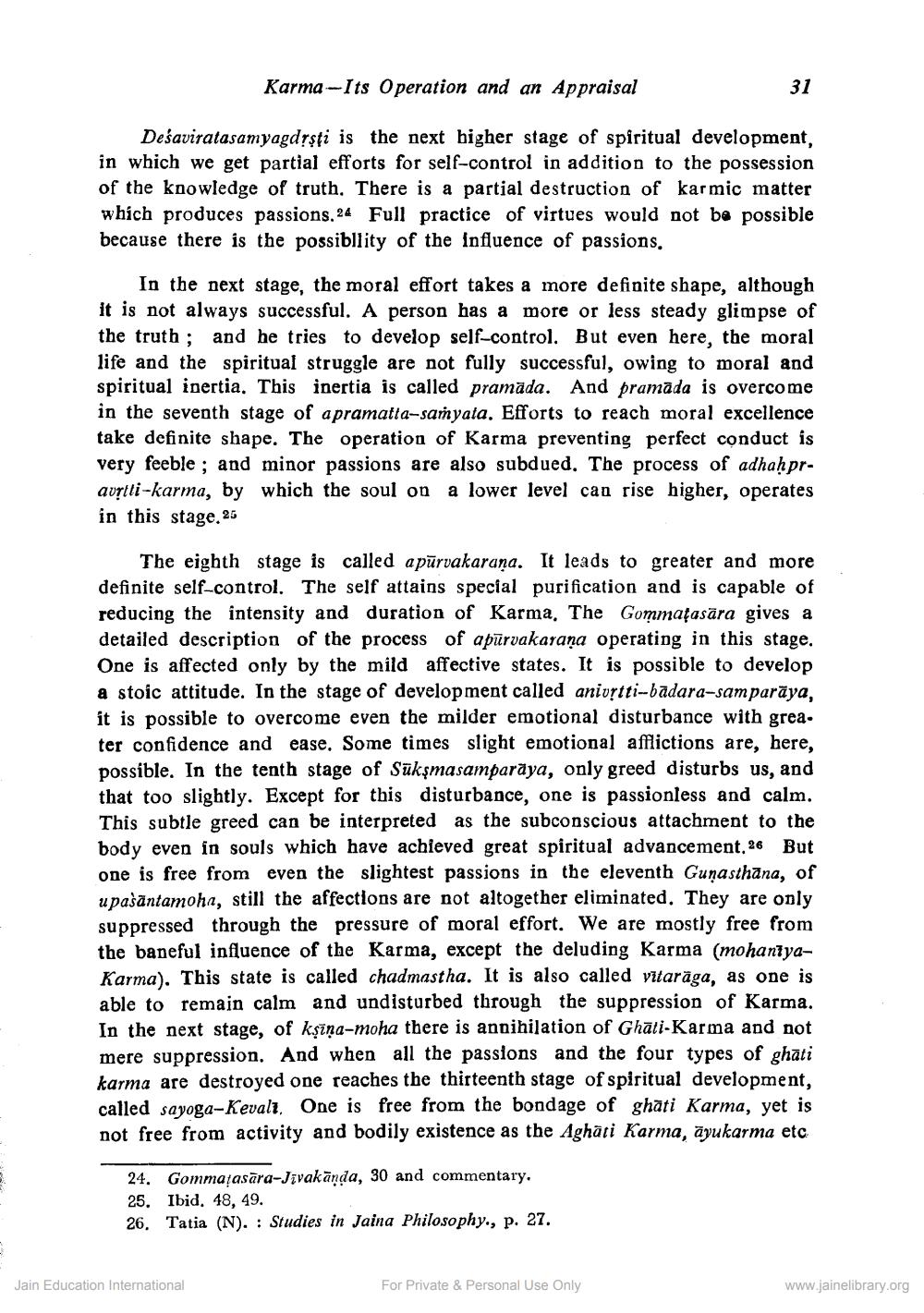________________
Karma-Its Operation and an Appraisal
31
Dešaviratasamyagdrsti is the next higher stage of spiritual development, in which we get partial efforts for self-control in addition to the possession of the knowledge of truth. There is a partial destruction of karmic matter which produces passions.24 Full practice of virtues would not be possible because there is the possibllity of the influence of passions,
In the next stage, the moral effort takes a more definite shape, although it is not always successful. A person has a more or less steady glimpse of the truth; and he tries to develop self-control. But even here, the moral life and the spiritual struggle are not fully successful, owing to moral and spiritual inertia. This inertia is called pramada. And pramada is overcome in the seventh stage of a pramatta-samyata. Efforts to reach moral excellence take definite shape. The operation of Karma preventing perfect conduct is very feeble ; and minor passions are also subdued. The process of adhahpravstli-karma, by which the soul on a lower level can rise higher, operates in this stage. 25
The eighth stage is called a pūrvakarana. It leads to greater and more definite self-control. The self attains special purification and is capable of reducing the intensity and duration of Karma, The Gommațasāra gives a detailed description of the process of apūrvakarana operating in this stage. One is affected only by the mild affective states. It is possible to develop a stoic attitude. In the stage of development called anivrtti--badara-samparāya, it is possible to overcome even the milder emotional disturbance with grea. ter confidence and ease. Some times slight emotional afflictions are, here, possible. In the tenth stage of Sükşmasamparāya, only greed disturbs us, and that too slightly. Except for this disturbance, one is passionless and calm. This subtle greed can be interpreted as the subconscious attachment to the body even in souls which have achieved great spiritual advancement.26 But one is free from even the slightest passions in the eleventh Gunasthāna, of upašāntamohn, still the affections are not altogether eliminated. They are only suppressed through the pressure of moral effort. We are mostly free from the baneful influence of the Karma, except the deluding Karma (mohaniyaKarma). This state is called chadmastha. It is also called vitarāga, as one is able to remain calm and undisturbed through the suppression of Karma. In the next stage, of kşīņa-moha there is annihilation of Ghāti-Karma and not mere suppression. And when all the passions and the four types of ghati karma are destroyed one reaches the thirteenth stage of spiritual development, called sayoga-Kevali. One is free from the bondage of ghāti Karma, yet is not free from activity and bodily existence as the Aghāti Karma, āyukarma etc
24. Gommajasāra-Jivakānda, 30 and commentary, 25. Ibid. 48, 49. 26. Tatia (N). : Studies in Jaina Philosophy., p. 27.
Jain Education International
For Private & Personal Use Only
www.jainelibrary.org




